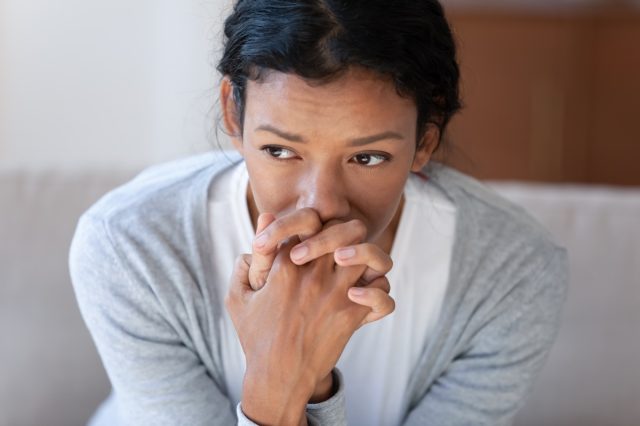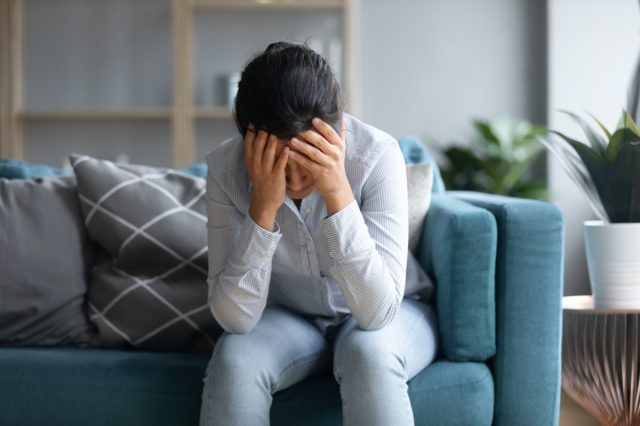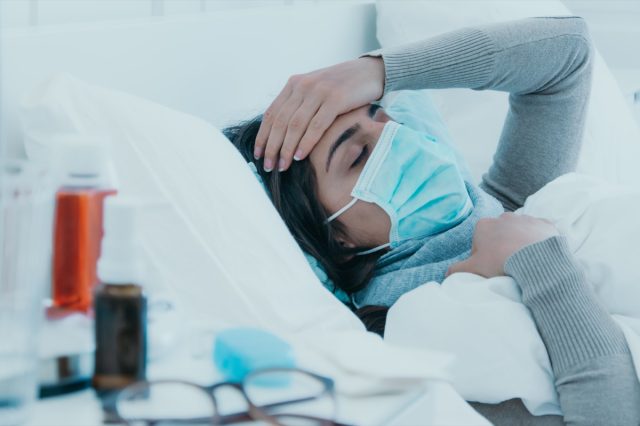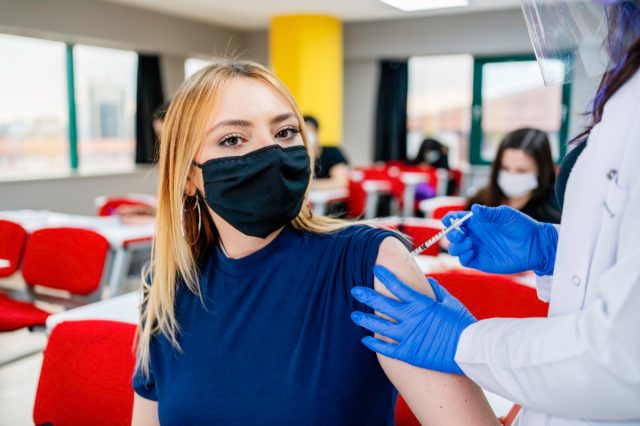Health experts are unanimous: Although the Omicron variant of COVID-19 seems to cause a milder illness than previous iterations of the coronavirus, even a mild case can feel pretty terrible, and if you do need medical attention, it might be in short supply because healthcare systems are becoming overwhelmed. There are good reasons to avoid contracting COVID right now, and there are things you can do to prevent it. One is avoiding this risk factor, a side effect of the pandemic itself that you've probably never considered.
Study Points Up Unusual COVID Risk

According to a new study published in the journal Annals of Behavioral Medicine, people who experienced greater levels of stress, anxiety, and depression during the beginning of the COVID-19 the pandemic had a higher risk of developing COVID-19. They also reported a higher number of symptoms and more severe illness.
Study Tracked More Than 1,000 People

The study involved nearly 1,100 adults, who completed surveys that tracked COVID-19 infection and symptoms from April to December 2020. Researchers found that participants who had elevated psychological distress were more likely to experience COVID-19 infection and symptoms.
"The significance of the work is in that it turns the debate regarding the mental health aspects of the pandemic on its head," said Dr. Kavita Vedhara of the University of Nottingham, who led the study. "Our data show that increased stress, anxiety and depression are not only consequences of living with the pandemic, but may also be factors that increase our risk of getting SARS-CoV-2 too."
How Could Stress Cause COVID?

Chronic stress causes the brain to pump out more of the stress hormone cortisol. That has a number of negative effects, including a weakened immune system. According to the American Cancer Society, people who experience chronic stress are more prone to the common cold and viral infections like the flu.
"Previous work has shown a clear relationship between distress and the development of viral infections, indicating a vulnerability," said Dr. Trudie Chalder, a professor of cognitive behavioral psychotherapy at King's College London, who contributed to the new research. "Our study found that distress was associated with self-reported COVID-19 infection and the next step is to investigate whether this association is found in those with confirmed infection."
Indeed, the new study isn't the first to point up a potential connection between stress and worse cases of COVID-19. A study published last August in the journal Stress and Health suggests that because being stressed causes inflammation throughout the body, it can contribute to more severe COVID (which can inflame the lungs, brain and kidneys, leading to organ failure.) "We postulate that chronic stress should be considered a significant risk factor for adverse COVID-19-related health outcomes, given overlapping peripheral and central immune dysregulation in both conditions," the researchers wrote.
Other COVID Risk Factors

Reducing stress is important for overall health, not just avoiding COVID. Exercise and relaxation exercises like meditation and mindfulness can help.
The most important thing to do to avoid catching COVID-19 is to be fully vaccinated and get a booster shot. In people who've been fully vaccinated, becoming severely ill from COVID is extremely rare.
A CDC report released on Jan. 7 outlined the main risk factors for contracting a severe case of COVID-19 if you've been vaccinated. They include:
- Being age 65 or older
- Being immunocompromised
- Lung disease
- Chronic kidney disease
- Neurological disease
- Heart disease
How to Stay Safe Out There

Follow the fundamentals and help end this pandemic, no matter where you live—get vaccinated ASAP; if you live in an area with low vaccination rates, wear an N95 face mask, don't travel, social distance, avoid large crowds, don't go indoors with people you're not sheltering with (especially in bars), practice good hand hygiene, and to protect your life and the lives of others,.
No comments:
Post a Comment